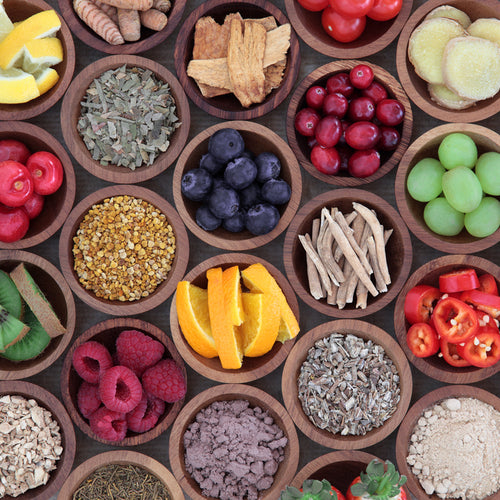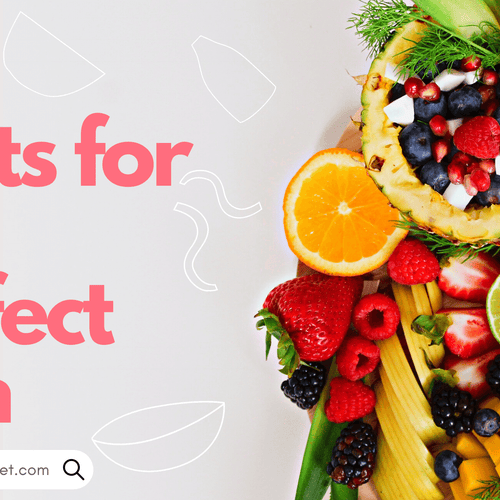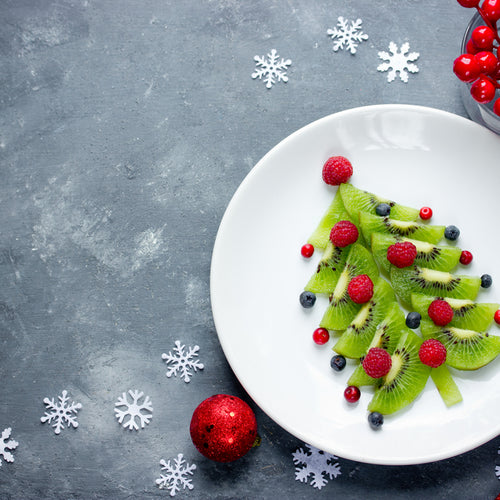A strong immune system helps a person stay healthy by fighting off bacteria and viruses. In this article, we will round up some of the best fruits and vegetables that can help to boost the immune system:
Top 15 Fruits & Veg to Boost your Immune System
1. Grapefruit

Known for their sweet and sour taste, grapefruits are tropical citrus fruit packed with nutrients, fibre and antioxidants and can help to boost your body’s immune system.
Due to its high vitamin C content, it has powerful antioxidant properties, protecting cells from bacteria and viruses. Vitamin C has also been shown to be beneficial in helping people recover more quickly from the common cold.
Grapefruit is also rich in multiple vitamins and minerals that are known to benefit immunity, such as vitamin A, which protects against inflammation and a host of infectious diseases.
2. Spinach

Spinach is an incredibly nutrient-rich vegetable. There are ample amounts of carotenoids, vitamin C, vitamin K, folic acid, and iron in this leafy vegetable.
Approximately 34% of your daily vitamin C requirement is found in every 100 grams of spinach, according to the United States Department of Agriculture (USDA). If you’re looking to keep a winter cold at bay, then we recommend adding some spinach to your diet!
3. Red Bell Peppers

If you’re looking to boost your immune system this winter then you should definitely consider incorporating more red bell peppers into your diet.
The red pepper is one of the best sources of vitamin C! In fact, studies have shown that they contain nearly three times the amount of vitamin C as oranges.
Additionally, this vegetable contains a rich source of beta-carotene. There is evidence that beta-carotene increases the number and activity of the body’s immune cells. It has also been shown to enhance the immune system's ability to fight cancer. What’s not to love?
4. Papaya

These tropical fruits are also called papaws or pawpaws and grow in tropical climates. Besides their sweet taste and vibrant colour, they offer a wide range of health benefits.
Studies have shown that a cup of papaya (roughly 145 grams) provides 97% of the daily recommended amount of vitamin C. With this in mind, it's not hard to see why Christopher Columbus called the papaya the "fruit of the angels”.
5. Oranges

The health benefits of oranges are exceptional throughout the year. Not only are they packed full of delicious flavour, they're also loaded with immune-boosting Vitamin C.
Studies have shown that just one medium sized orange can provide up to 78% of your recommended daily amount of vitamin C.
6. Garlic

Garlic was used for medicinal purposes long before it became a staple ingredient in cooking. It is rich in immune-boosting compounds, including manganese, vitamin B6 and C, as well as selenium and fibre.
Studies have shown that garlic supplements boost the immune system. According to a 12-week study, taking garlic supplements daily reduced colds by 63% compared to taking a placebo.
7. Pomegranates

Not only are they sweet and juicy in flavour, but pomegranates are also rich in vitamin C, which helps to boost the body’s natural antibody production and promotes the development of immunity.
So, if you’re looking to stay healthy this winter by keeping your immune system fighting fit, then consider incorporating pomegranates into your diet.
Aside from being rich in vitamin C, they’re also rich in anti-inflammatory compounds, meaning they can help those suffering from immune-related disorders like osteoarthritis.
8. Lemons

Like most other citrus fruits, lemons are full of healthy vitamins, including vitamin C, which acts as an antioxidant.
Lemons have many uses - A common remedy for scurvy among sailors during the 1700s was lemons. Raw lemons, including their peels, provide 83 mg of vitamin C, or 92% of the recommended daily value. Additionally, lemons contain vitamin C, a potent antioxidant that can prevent the deterioration of cut fruit and vegetables.
9. Carrots

Carrots are another vegetable packed with healthy nutrients! In fact, just one large carrot provides 5 per cent of the recommended daily vitamin C intake.
Not only are they a great source of vitamin C, they also contain beta-carotene, a powerful antioxidant that can reduce inflammation and boost immune function by promoting the production of disease-fighting cells in the body.
10. Broccoli

Broccoli belongs to the cruciferous vegetable family. About 57% of the daily value for vitamin C, or 51 mg, is contained in half a cup of cooked broccoli.
A number of observational studies have suggested that eating cruciferous vegetables, especially those rich in vitamin C, may contribute to a reduction of oxidative stress, better immunity, and a lower risk of cancer and heart disease.
11. Ginger

Consider including a bit of ginger in your diet if you want to avoid catching a cold this winter.
Ginger contains certain chemical compounds that protect your body from germs. They're especially effective at killing bacteria such as E. coli and Shigella, as well as viruses like RSV.
There are many antioxidants in ginger, compounds that prevent stress and DNA damage. The nutrients may help your body fight chronic diseases such as high blood pressure, heart disease, and lung diseases, as well as promote healthy ageing.
12. Kiwi

Kiwifruit is rich in vitamin C, which may help to reduce oxidative stress, improve immunity, and lower cholesterol. Not bad, right?
Not only is this fruit packed with flavour, but it’s also rich in vitamins and minerals. In fact, it’s thought that a medium Kiwi supplies 79% of your daily vitamin C needs. Another study found that eating two kiwis a day for four weeks increased the activity of white blood cells by 20% in 14 men with vitamin C deficiency. Just one week later, vitamin C levels in the blood had increased by 304%.
13. Squash

Though commonly thought of as a vegetable, butternut squash is technically a fruit and is jam-packed with minerals, antioxidants and vitamin goodness!
In fact, studies have shown that one cup-sized serving of butternut squash provides more than 50% of the daily recommended vitamin C intake. Additionally, butternut squash is also high in carotenoids, which are plant pigments that give the fruit its bright orange colour.
14. Limes

The humble lime really does pack a punch. In fact, studies have shown that just one lime can provide 32% of the daily recommended amount of vitamin C.
Aside from the fact that limes are a wonderful source of vitamin C, they also possess nutrients that can support the cardiovascular system, reduce the risk of asthma, and promote healthy skin. What can’t they do?
That rounds up our list of the 15 best fruits to help boost your immune system this winter. Give the gift of health today with our wide selection of fruit baskets; from succulent wellbeing fruit baskets to delicious family gift fruit baskets, we have everything you need to give your skin the care and attention it deserves.
15. Kale

Is Kale king? The science points to yes! Kale is one of the most nutrient-dense foods in the world. The leaves of kale are packed with several beneficial compounds, many of which have medicinal properties.
A single cup of raw kale can contain up to 134% of the recommended daily intake of vitamin C. Not only that, this marvellous vegetable is jam-packed with antioxidants, such as kaempferol and quercetin, which are brilliant for maintaining important bodily functions.





